Looking for WhatsApp alternatives? Here are 6 secure messaging apps to check out
WhatsApp is facing widespread criticism for forcing users to accept its new data-sharing policies. As a result, several users are now scouting for alternative chat apps that are secure and private.
Earlier in January, WhatsApp released a privacy update that urged its two billion users to hit ‘accept’ before February 8 or face deletion of their accounts.
Among other things, the in-app notification stated, “WhatsApp must receive or collect some information to operate, provide, improve, understand, customise, support, and market our services, including when you install, access, or use our services. The types of information we receive and collect depend on how you use our services.”
Needless to say, it shocked and angered WhatsApp users worldwide, leading to social media outrage against the app and its controversial parent company Facebook.
But WhatsApp’s pain is others’ gain.
Within days of the privacy update hitting mobile screens, users started scouting for alternative messaging apps that are more “secure” and less inclined to compromise data for business gains.

Image Source: Shutterstock
Following their reactions, WhatsApp pushed back its implementation deadline by three months to May 2021. However, public sentiment has still not turned in its favour.
A recent study conducted by market research and communications firm BM Nxt found that 82 percent of WhatsApp users have “rejected” the new privacy policy.
A majority of these users also said that they have either switched to another chat app or intend to do so within a week or a month.
To make the search easier, YourStory drew up a list of WhatsApp alternatives — some already popular, some not so much, and some especially useful in India.
Telegram

Telegram is an old warhorse when it comes to WhatsApp alternatives.
Interestingly, several WhatsApp users had already been using it as a supplementary and fuss-free messaging app. But WhatsApp’s contentious privacy policies opened Telegram up to even the uninitiated.
It clocked 25 million downloads in 72 hours in early January. Over 38 percent of its new users are from Asia, and 27 percent from Europe. Globally, the platform has crossed 500 million users. In India alone, Telegram grew its user base by 110 percent in the last one year.
The app is similar to WhatsApp in many ways: chats, groups, media and file-sharing, cloud backup for chat history, etc. However, unlike WhatsApp, which has limits on group sizes, Telegram allows users to create group chats for up to 200,000 members, share large videos, documents of any type, and even set up bots for specific tasks.
Telegram also offers Secret Chats or messages programmed to self-destruct automatically from both participating devices, and even lets users import chat history from other apps. In December, it launched voice chat rooms (ala Clubhouse) and is expected to roll out group video calling shortly.
Signal
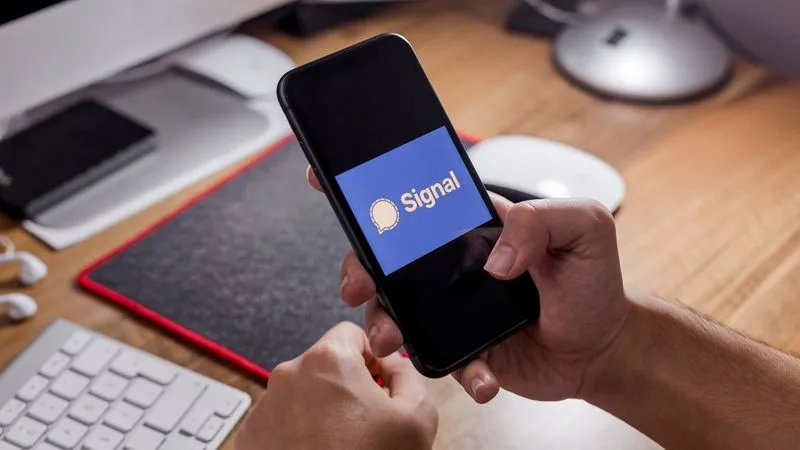
Image Credit: CNN
Until recently, Signal usage was limited to techies, cybersecurity enthusiasts, tech journalists, and other privacy-conscious early adopters. But, over the last few weeks, the open-source platform has seen massive growth — a lot of it accelerated by Tesla CEO Elon Musk’s “Use Signal” tweet posted on January 7.
Soon after, Signal climbed to the top of the free apps category on Apple App Store in several countries, including India. The barrage of new users that flocked to the app crashed Signal servers, resulting in outages. App downloads grew 62-fold to nearly 18 million in a week, as per Sensor Tower data.
Interestingly, the “private” messenger app was founded by Brian Acton (co-founder of WhatsApp).
“We’ve seen unprecedented growth this past week... It’s safe to say that because of this record growth, we’re even more interested in finding talented people,” Acton was quoted as saying.
To ensure that WhatsApp users find Signal familiar and sticky, the latter is rolling out an array of features that mimic the Facebook-owned app. From chat wallpapers and animated stickers to image editing tools and group video calls for up to eight users — Signal is getting as close to WhatsApp as it can.
Threema
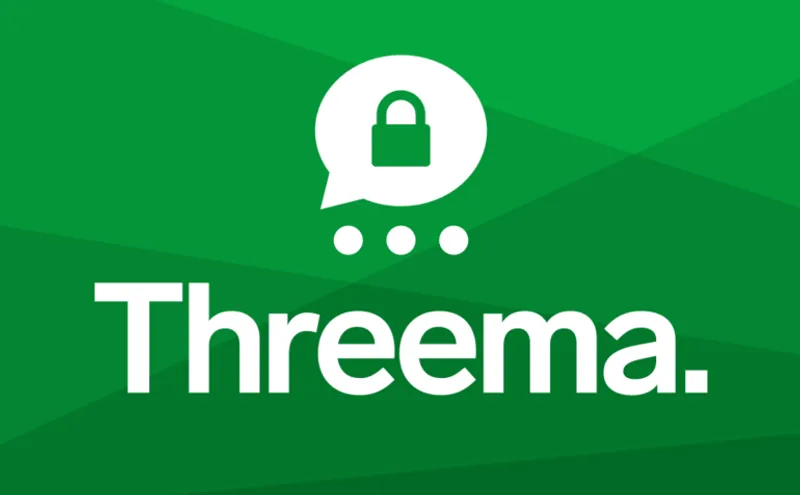
Threema may not be as popular as Telegram or Signal, but it calls itself “the world’s best-selling secure messenger”. Threema is a paid app that can be availed by Indian users for an upfront fee of Rs 270.
Threema uses the open-source NaCl cryptography library for delivering end-to-end encrypted messages. Messages are deleted instantly after they have been delivered to the recipient. Local files are stored encrypted on the user’s device with no backdoor access.
Like WhatsApp, Threema allows text and voice messages, voice and video calls, and sharing of files, multimedia, and location.
It also lets users chat anonymously without revealing their phone numbers, conduct group chats, create polls, and verify the identity of contacts by scanning their personal QR codes. It claims to be fully GDPR compliant, and has over one million installs.
Bridgefy
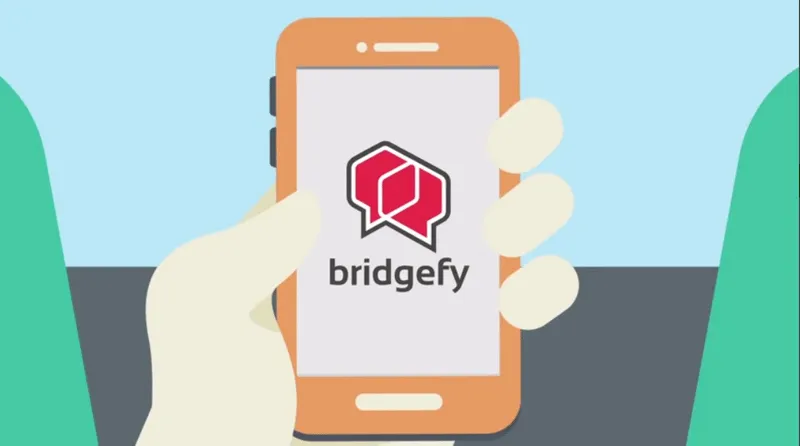
In the wake of the recent internet shutdowns in Delhi-NCR, Bridgefy is a nifty app to have. It had gained fleeting popularity in India during the anti-CAA protests of 2019 that led to similar episodes of internet shutdowns in several states.
Bridgefy is useful because the Bluetooth-based messaging app allows users (within a city) to communicate sans an internet connection or mobile network. The app has crossed a million downloads on Google Play Store.
Bridgefy has three operational modes:
a) Person-to-person, which lets you chat privately with another user located within 100 metres (or 330 feet) of you
b) Mesh network, which lets you connect with users located further by communicating with Bridgefy users in the middle, thereby forming a human chain
c) Broadcast mode, which automatically detects other Bridgefy users around you and allows group chats with people who may or may not be in your contact list.
Element
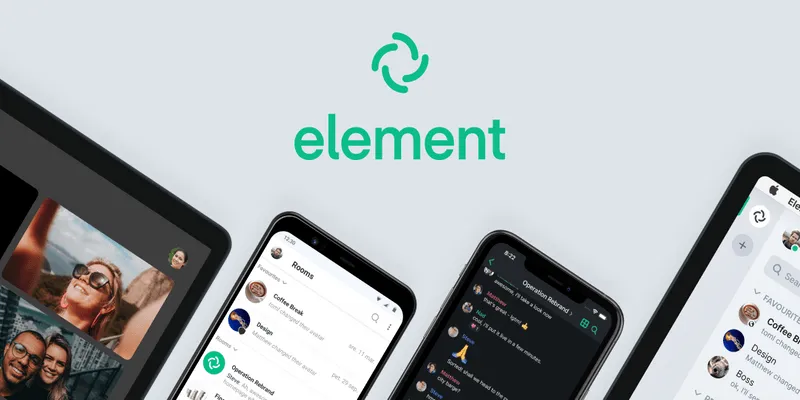
Element (earlier known as Riot.im) is both a messenger and a video collaboration platform. The app is compatible with Android, iOS, macOS, Windows, Linux, and major browsers. It has crossed one lakh installs on Google Play Store.
Element is a decentralised chat app that uses the Matrix open-source network, and secures all your communication with end-to-end encryption and cross-signed device verification.
The app claims to “keep conversations in your control, safe from data-mining and ads”, and can be used to chat one-on-one with friends, family, peers, colleagues, and even groups, communities, and organisations.
It offers features like voice and video chats, file and screen sharing, video conferencing, quick integration with project management software, VoIP services, and other team messaging and productivity tools like Slack.
Element can also be used to host clubs, communities, and social events.
Wire
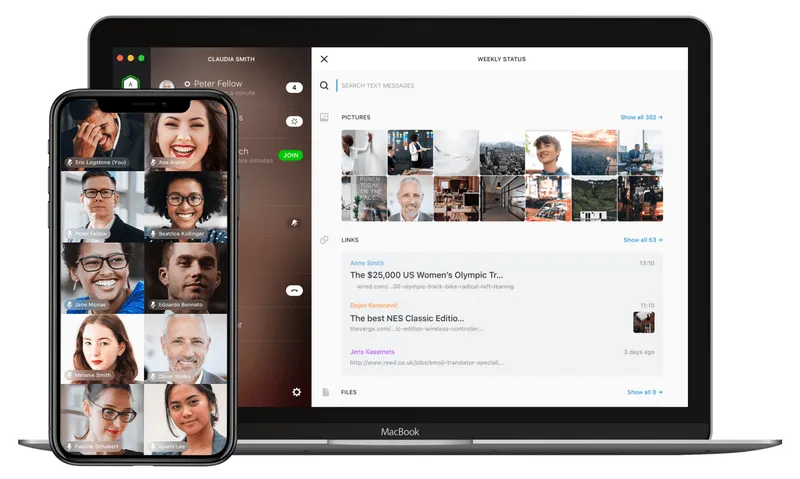
Founded by Janus Frii, who is the co-founder of Skype, Wire is an open-source app that encrypts chats end-to-end, and lets users sign up even without a phone number and real name. It is simple, easy-to-use, and is compatible with Android, iOS, and web platforms.
Like most chat and collaboration tools, Wire offers video and voice calls, private or group communication, file, document, link and location sharing, message reactions, and a one-click conference call button.
The app comes with the disappearing messages feature, and also offers stylus support for handwritten messages.
Paid business users of Wire can also invite partners, customers, and suppliers to collaborate through unique guest rooms, or even integrate the app with their corporate apps and services.
In that sense, Wire is the closest WhatsApp alternative to WhatsApp. It has over one million installs on Google Play Store.
Edited by Saheli Sen Gupta






![[App Fridays] Inside Clubhouse, the invite-only voice social network taking Silicon Valley by storm](https://images.yourstory.com/cs/2/dc9aa1302d6c11e9aa979329348d4c3e/Untitleddesign-2021-01-14T172905-1610625575661.png?fm=png&auto=format&h=100&w=100&crop=entropy&fit=crop)